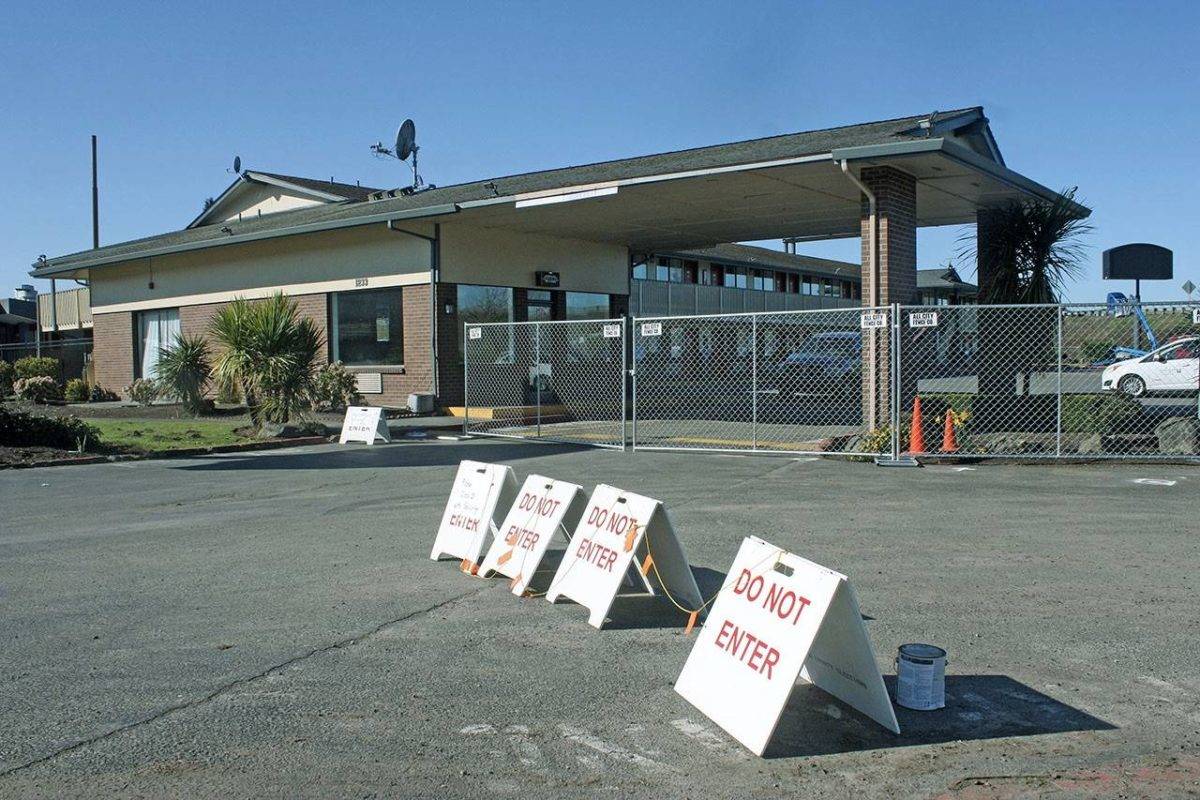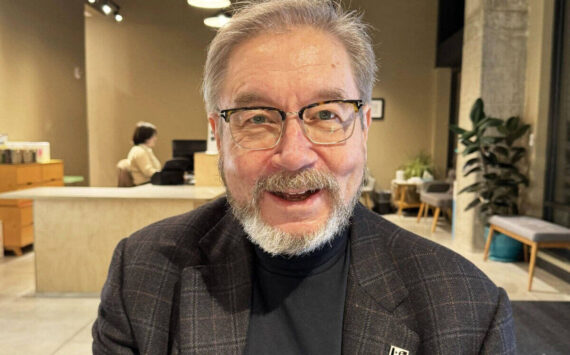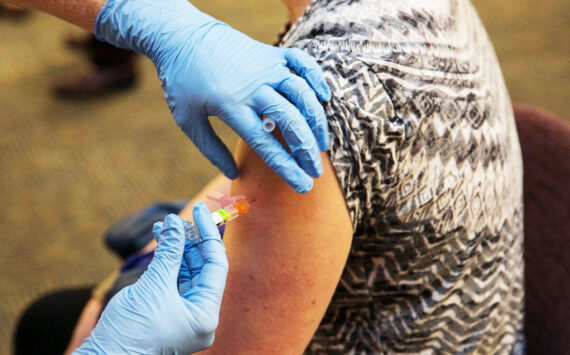King County this week reopened its COVID-19 Kent Isolation and Quarantine Facility at a former hotel, but without the controversy of its initial opening in March.
Kent city leaders were outraged and filed a lawsuit in March after county officials bought the Econo Lodge, 1233 Central Ave. N., and turned it into a facility without informing the city or following the permit process.
The city’s efforts to halt the center from operating failed, but the suit helped reach an agreement with county officials to follow zoning laws and only use the facility for COVID-19 purposes.
An increase in COVID-19 cases caused the county to reopen the center Nov. 30 after it was temporarily deactivated earlier in the summer.
“The number of people calling for isolation and quarantine also started to rise, including a number of families with children,” said Sherry Hamilton, communications director for the King County Department of Community and Human Services, in a Dec. 3 email. “As available (isolation and quarantine) capacity began to shrink amid predictions of a continued rise in infections after the (Thanksgiving) holiday, the county made the decision to reopen Kent and bring 80 more beds online. We used the long weekend to assemble the necessary 24/7 staffing.”
Hamilton said most people who are exposed to COVID-19 or become sick will choose to isolate or recover at home.
“King County created isolation and quarantine sites to help people who are not able to safely isolate and recover in their own homes, or do not have a home,” Hamilton said. “From the beginning, the purpose of (isolation and quarantine) was, and is, to prevent the spread of COVID-19 and to preserve hospital beds for those who are most critically ill.”
City leaders accept the latest decision.
“So far the city is pleased with the process the county has used to reopen the isolation and quarantine facility,” said Bailey Stober, city communications manager, in a Dec. 3 email. “The county utilized other facilities first, and only once nearing capacity did they determine they would reopen the Kent facility. When the other facilities see a reduction in capacity, the Kent facility will be the first to close back down and go into warm status.”
The county has a capacity of about 200 rooms at its three isolation facilities in Kent, Seattle and Issaquah, Hamilton said. All have 24/7 health and behavioral heath services, meals, assistance with basic needs (toiletries, snacks, etc.), onsite security and transportation to and from the facility.
All referrals to the isolation and quarantine sites are through the King County COVID-19 Hotline at 206-477-3977. Hotline hours are 8 a.m. to 10 p.m.
“We have signed a MOU (memorandum of understanding) with King County as a result of our lawsuit that spells out the terms and conditions of when and how the facility can be used,” Stober said. “The MOU also has assurances for things like 24-hour security. The county alerted us several weeks ago they were nearing capacity at the other facilities and would have to reopen Kent, with the assurance it would close during a capacity reduction at the other facilities.”
Hamilton said it’s hard to say how many people the 83-bed Kent facility will handle. She said it will depend on what happens with case rates in the coming days and weeks. The county had 115 guests total Dec. 2 at the three sites. The three centers have served almost 1,800 people since March.
“We are happy to partner with the county as long as they honor the MOU and respect our wishes to keep our residents informed about what is going on,” Stober said. “This process of reopening has been a stark contrast to when the facility was acquired and we are happy with the partnership and communication we are seeing from the county.”
King County also has agreed to sell the facility and return it to private use as soon as the pandemic is over, Stober said.
Once the pandemic is over, county and city staff will work on potential uses for the facility, including the possibility of a sale, Stober said. City leaders prefer that the property return to private use if the county agrees, Stober said. City zoning laws would apply once the pandemic ends, which would give the city more control about future uses of the property if the county holds onto it.
Editor’s note: This story has been updated about potential future use of the property after the pandemic ends.







